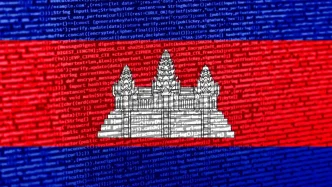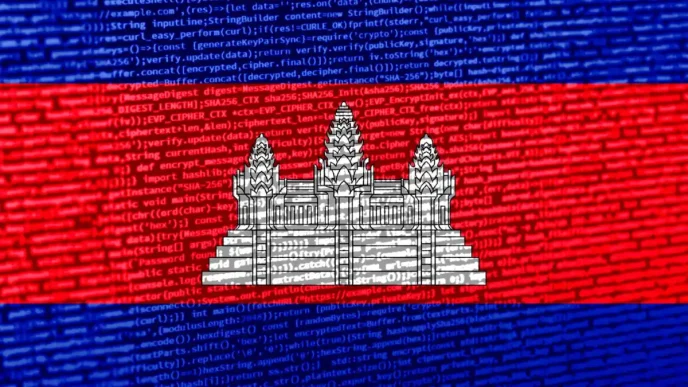Singapore finds itself at the centre of a high-profile extradition case involving Paulus Tannos, an Indonesian businessman accused of corruption in a multi-billion rupiah scandal. The case, which marks the first extradition request under a recently enacted treaty between Singapore and Indonesia, has raised questions about legal processes, diplomatic ties, and the challenges of balancing international obligations with individual rights. Tannos, arrested in Singapore on 17 January 2025, is contesting his extradition, setting the stage for a protracted legal battle that could span years.
A Landmark Extradition Request
The extradition request, formally submitted by Indonesia on 24 February 2025, stems from allegations of Tannos’ involvement in a major graft scandal linked to Indonesia’s electronic ID card (e-KTP) project. Authorities claim the scandal caused state losses of approximately 2.3 trillion rupiah (S$187 million), with Tannos, as president and director of technology firm Shandipala Arthaputra, implicated in the mismanagement of contracts for the project. Having reportedly lived in Singapore since 2017, Tannos has been on Indonesia’s fugitive list since October 2021.
The extradition treaty between Singapore and Indonesia, effective from 21 March 2024, allows for the extradition of individuals accused of offences such as corruption, money laundering, and bribery, with retrospective application for crimes committed up to 18 years prior. This treaty represents a significant step in bilateral cooperation on cross-border crime, reflecting both nations’ commitment to combating corruption. However, the Tannos case is proving to be a litmus test for the treaty’s implementation, as legal and procedural complexities emerge.
At a press conference on 10 March 2025, Singapore’s Law and Home Affairs Minister K. Shanmugam underscored the gravity of the case. “Singapore takes this matter very seriously,” he stated, adding that the Attorney-General’s Chambers (AGC) would work to expedite the process. Yet, with Tannos assembling a legal team to contest the extradition, Shanmugam cautioned that the proceedings could extend over two years if challenged at every stage.
Legal Hurdles and Procedural Delays
Under Singapore’s Extradition Act, fugitives have the option to consent to extradition, potentially shortening the process to six months or less. Tannos, however, has explicitly refused to consent, opting instead to fight the request. This decision, as Shanmugam noted, entitles Tannos to apply for bail, seek time to prepare his defence, and appeal any court order for extradition. The minister highlighted that the longest extradition case in Singapore’s recent history— involving two Indian brothers extradited to the US—took approximately two years, suggesting a similar timeline could apply here if the case remains contentious.
Tannos’ legal strategy has already introduced additional complications. During a court hearing on 23 January 2025, his lawyers claimed he holds a diplomatic passport from Guinea-Bissau, a West African nation. However, Singapore’s State Counsel clarified that this does not confer diplomatic immunity, as Tannos is not accredited with the Ministry of Foreign Affairs. When asked by the judge if he would consent to extradition to Indonesia, Tannos expressed willingness to be sent to Guinea-Bissau but refused to return to Indonesia. His legal team has also requested a bail hearing, citing an unspecified medical condition, with a review scheduled for 19 March 2025.
Further delays have arisen due to Tannos’ health issues. His most recent court appearance, set for 7 March 2025, was postponed as he was hospitalised. A new mention is now scheduled for 13 March. These interruptions, combined with the formal processes required under Singaporean law, have fuelled speculation in Indonesian media about perceived delays in the case, despite the relatively short time since Tannos’ arrest.
Responding to such criticism, Shanmugam emphasised that Singaporean authorities have been working closely with their Indonesian counterparts since receiving a provisional arrest request on 19 December 2024. The Corrupt Practices Investigation Bureau (CPIB) and AGC reviewed the request, obtained an arrest warrant, and apprehended Tannos on 17 January 2025. “It is not like we can just put him on a plane and send him back,” Shanmugam explained, noting that Tannos entered Singapore on a valid passport, necessitating adherence to formal extradition protocols rather than summary deportation.
Broader Implications for Singapore-Indonesia Relations
The Tannos case arrives at a sensitive juncture for Singapore-Indonesia relations. The extradition treaty, hailed as a milestone in combating transnational crime, underscores both nations’ shared interest in upholding justice and curbing corruption—a pervasive issue across South East Asia. Singapore, known for its strict anti-corruption stance and robust legal system, has positioned itself as a responsible partner in international law enforcement. A statement from the Ministry of Law (MinLaw) on 10 March 2025 reaffirmed this commitment: “The Singapore Government is fully committed to combating crime and upholding our role as a responsible extradition partner.”
Yet, the case also highlights the inherent tensions between legal obligations and diplomatic considerations. Singapore must navigate the expectations of Indonesia, which seeks swift justice for an alleged crime of significant national impact, while ensuring due process under its own legal framework. The prolonged timeline, though procedurally justified, risks perceptions of leniency or inefficiency—particularly in Indonesian public discourse, where frustration over delays has already surfaced.
Moreover, Tannos’ claim of holding a diplomatic passport from Guinea-Bissau, though dismissed by Singaporean authorities, introduces an unusual dimension to the case. While it does not alter his legal status in Singapore, it raises questions about his activities and connections prior to his arrest. If pursued by his legal team, this issue could further complicate proceedings, potentially drawing international attention to the case beyond the bilateral context of Singapore and Indonesia.
Balancing Individual Rights and International Obligations
At its core, the Tannos extradition case exemplifies the delicate balance between individual rights and international legal obligations. Singapore’s Extradition Act provides fugitives with avenues to contest their return, reflecting a commitment to fair treatment and judicial oversight. Tannos’ right to challenge the request, apply for bail, and appeal decisions ensures that his case is not decided arbitrarily, aligning with Singapore’s reputation as a rule-of-law state.
However, this emphasis on due process can clash with the urgency of international cooperation, particularly in cases involving corruption, where public and governmental expectations for accountability are high. The e-KTP scandal, with its staggering financial toll on the Indonesian state, has likely amplified domestic pressure on Jakarta to secure Tannos’ return. For Singapore, facilitating the extradition while adhering to legal standards is not merely a procedural matter but a test of its credibility as a regional partner.
There is also the speculative question of whether Tannos’ resistance to extradition is driven by fears of unfair treatment or political motivations in Indonesia. While no evidence supports such claims, his determination to contest the process—and his expressed preference to be sent to Guinea-Bissau rather than Indonesia—suggests a deeper context to his legal strategy. If confirmed, such concerns could add a layer of complexity to the case, though Singaporean authorities are unlikely to entertain unverified assertions without substantial proof.
Regional Context: Corruption and Extradition in South East Asia
The Tannos case must also be viewed within the broader regional context of South East Asia, where corruption remains a systemic challenge. High-profile scandals, often involving public contracts and state resources, have plagued multiple countries in the region, eroding public trust and hindering economic development. Indonesia’s efforts to pursue fugitives like Tannos reflect a growing resolve to address these issues, supported by international agreements such as the Singapore-Indonesia extradition treaty.
Singapore, as a financial and legal hub, frequently finds itself at the intersection of such cases. Its strict laws and reputation for neutrality make it a common refuge for individuals seeking to evade prosecution elsewhere, yet also a key player in facilitating justice through extradition. The outcome of the Tannos case could set a precedent for how future requests under the treaty are handled, potentially influencing bilateral cooperation on other matters, from economic partnerships to security collaboration.
Furthermore, the case underscores the importance of harmonising legal frameworks across borders. While the treaty provides a foundation for extradition, differences in judicial processes and timelines—evident in the Tannos proceedings—can create friction. If delays persist, they may prompt calls for streamlining mechanisms or enhancing mutual legal assistance, though such reforms would require careful negotiation to preserve national sovereignty and individual protections.
Looking Ahead: A Protracted Legal Battle
As the Tannos case progresses, all eyes will be on Singapore’s courts and the unfolding legal arguments. With a bail review scheduled for 19 March 2025 and the possibility of appeals looming, the timeline for resolution remains uncertain. For now, Tannos remains in custody, having been remanded without bail since his arrest in January. His health issues, while not detailed publicly, may also influence the pace of proceedings, adding another variable to an already intricate case.
For Singapore, the challenge lies in maintaining its dual role as a defender of legal integrity and a cooperative international partner. The government’s commitment to facilitating the extradition, as reiterated by MinLaw and Minister Shanmugam, signals a determination to uphold the treaty’s spirit. Yet, the case’s complexity—spanning legal, diplomatic, and potentially political dimensions—ensures that it will remain a focal point of regional attention for the foreseeable future.
Ultimately, the resolution of Paulus Tannos’ extradition will not only impact the individuals and governments directly involved but also shape perceptions of justice and accountability in South East Asia. As the legal process unfolds, it serves as a reminder of the intricate interplay between national laws, international agreements, and the pursuit of fairness in an increasingly interconnected region.














